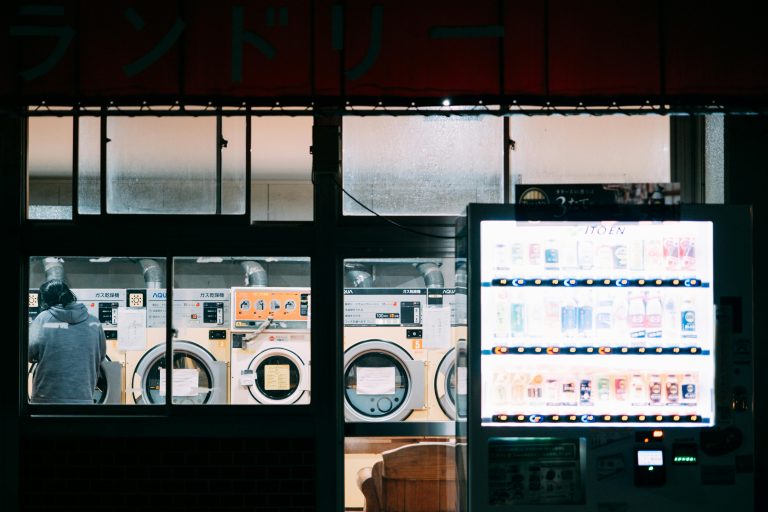Seeing the Machine Beyond the Metal
Buying coin-operated laundry machines isn’t just about acquiring washers and dryers—it’s about investing in a reliable stream of passive income. Whether you’re setting up a new laundromat, upgrading equipment in a multi-housing unit, or adding machines to a college dorm or RV park, the stakes are higher than they might appear.
Coin-operated laundry machines are business tools. Like any tool, the value comes from their performance, durability, and how well they suit your long-term goals. Before you jump into a purchase, it’s important to look past the price tag and consider what these machines really represent: a business asset with ongoing costs, maintenance needs, and revenue potential.
Know Your Customer, Know Your Machine
Before buying a single machine, consider the environment it will operate in. Are you serving students with quick loads of casual wear? Apartment dwellers doing weekly family-sized laundry? Tourists washing beachwear or work crews dealing with tough stains?
Each setting demands different features. High-speed spin cycles may be ideal in areas where users want shorter drying times. Machines with extra-large capacities may be better suited for family housing. Energy-efficient models may be critical where electricity is costly or sustainability is a key value for your audience.
Choosing the right machine starts with knowing the habits and needs of your end user. If your purchase doesn’t match the way people actually do their laundry, you’ll end up with equipment that’s either underused or overburdened.
Don’t Just Buy Used—Buy Smart
It’s tempting to scoop up used coin-operated machines for a bargain, especially when starting out. But there’s a difference between “used” and “usable.” Older machines might come with hidden problems: worn parts, outdated control boards, or software that’s no longer supported.
Always ask for a service history if you’re buying second-hand. Look at how many cycles the machine has run, whether parts have been replaced, and if it’s compatible with modern coin or card systems. Machines that seem cheap upfront may cost more in the long run due to constant breakdowns or inefficiencies.
Also, check for availability of replacement parts. If a machine model has been discontinued or the manufacturer is out of business, getting it fixed could turn into a financial black hole.
Mechanical Simplicity vs. Smart Features
Some buyers prefer machines with simple mechanical controls that are easy to fix and less prone to software glitches. Others seek high-tech models that accept mobile payments, send cycle notifications to users, and provide real-time data tracking to the owner.
Both have pros and cons. Simpler machines are generally more durable and cheaper to repair. However, smart machines offer the advantage of remote monitoring, which can help you track usage, maintenance needs, and revenue—all from your phone or laptop.
The key is balance. Choose the level of technology that fits your management style. If you plan to be hands-on and present, simpler might work. If you’re managing multiple locations remotely, smarter machines might make more sense.
Consider Water and Energy Efficiency
Efficiency is about more than just environmental impact—it affects your bottom line. Coin-operated machines that use less water and electricity can significantly reduce monthly utility bills. In areas with high water costs or tight energy regulations, inefficient machines can quickly become liabilities.
Look for Energy Star-rated models and machines that use high-speed spin cycles to reduce drying time. Over time, even a small reduction in energy usage per load adds up when you’re running dozens or hundreds of cycles a week.
Some cities and states even offer rebates or tax incentives for installing energy-efficient laundry equipment—another reason to go green when choosing machines.
Payment Flexibility Is the Future
While coin-operated machines still have a place, the laundry industry is steadily shifting toward hybrid or fully digital payment systems. Many modern users—especially younger demographics—don’t carry coins at all. Machines that accept contactless payments, apps, or reloadable laundry cards make life easier for users and often increase customer satisfaction.
Machines with flexible payment options also reduce your need to manually collect coins and deal with jams, which cuts down on maintenance time and improves reliability. Even if you’re not ready to ditch coins entirely, consider models that allow for both traditional and digital payments.
Maintenance Shouldn’t Be an Afterthought
Even the best machines break down eventually. How easy they are to fix—and how quickly parts can be replaced—should be a major factor in your buying decision.
Talk to local repair technicians or equipment suppliers to get a sense of which brands are the most service-friendly. Are replacement parts readily available? Is there a long track record of reliability? Can you get support locally, or will you be waiting weeks for imported parts?
Choosing machines that are easy to maintain will save you not just money, but also the most valuable resource: time.
The Hidden Cost of Downtime
Every day a laundry machine sits broken is a day of lost revenue. And in high-demand environments, broken machines can hurt your reputation with customers. If machines aren’t working when people need them, they’ll go somewhere else—and they may not come back.
When considering which machines to buy, ask yourself: how quickly can this model be serviced? How often does it typically require repairs? Is there remote diagnostic capability to identify problems before they become serious?
Think of downtime as a business cost, not just an inconvenience. Machines that stay running longer are always worth the extra investment upfront.
Conclusion: A Cleaner Investment Strategy
Buying coin operated laundry machines for sale isn’t just about choosing equipment—it’s about building a system that runs smoothly, earns consistently, and meets the needs of your users. Whether you’re opening a new laundromat or adding services to an existing property, the smartest investments are based on real-world usage, long-term efficiency, and strategic planning.
Before you make your purchase, think about who you’re serving, how you’ll maintain your machines, and whether your equipment can grow with your business. The right machines don’t just clean clothes—they help you build a cleaner, smarter, and more sustainable income stream.










